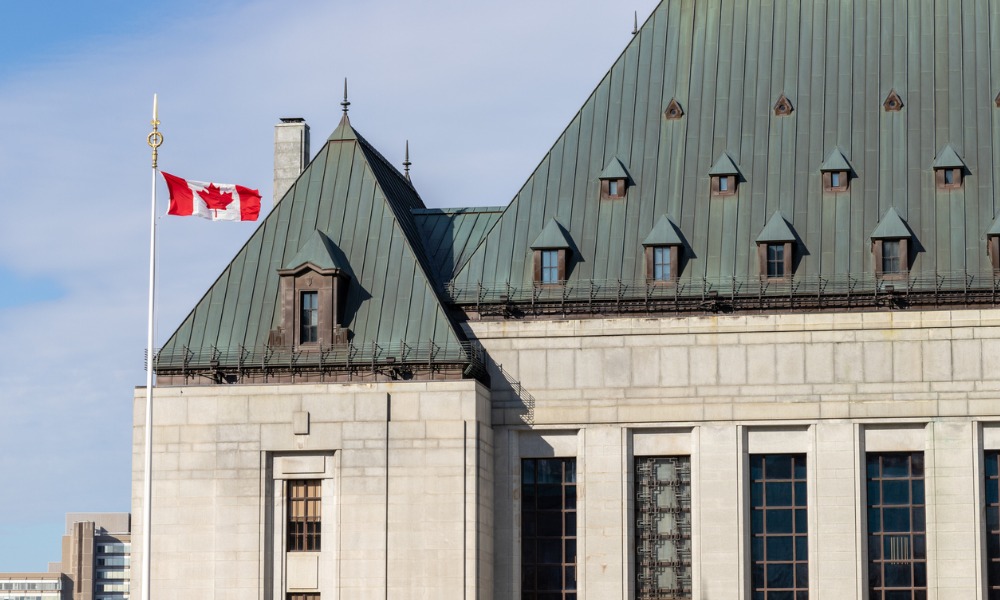Two sections of the act affirmed Indigenous-made laws prevail over conflicting provincial law

In finding federal legislation giving First Nations control over child welfare services constitutional, a unanimous decision of the Supreme Court of Canada has confirmed that the inherent right of self-government, recognized and affirmed in s. 35 of the Constitutional Act, 1982, includes legislative authority over Indigenous child and family matters.
The Court also found constitutional two sections of the Act the Quebec Court of Appeal had ruled ultra vires Parliament. One section gave laws of Indigenous groups, communities, or peoples the same force of law as federal law. The other confirmed that these Indigenous-made laws will prevail over conflicting or inconsistent provincial laws. Parliament has the power to enact these sections through s. 91(24) of the Constitution Act, 1987, which gives it jurisdiction over “Indians and lands reserved for the Indians.” The prevalence of Indigenous-made law is “simply a legislative restatement of the doctrine of federal paramountcy,” said the SCC.
“While the Supreme Court of Canada does not conclusively rule on the First Nations’ inherent right to self-government, the affirmation of the inherent right of Indigenous peoples to pass laws over child and family matters is positive,” says Stuart Wuttke, general counsel for the Assembly of First Nations, a respondent in the case.
The SCC endorsed an alternative method by which First Nations’ inherent rights can be recognized, where Parliament has expressed an affirmation of the inherent right through the House of Commons, the Senate, and the Governor General, says Wuttke.
“The Supreme Court of Canada noted that when it comes to other ways of recognizing the inherent right, through a constitutional amendment or self-government agreement – those processes are taking too long,” he says. “They often provide uncertain results, and in many cases result in lengthy and costly litigation.”
“The fact that the Supreme Court of Canada has endorsed an alternative method and opened up other avenues for the inherent rights of First Nations to be recognized is a positive outcome of this decision.”
Franklin Gertler represented the Assembly of First Nations Quebec-Labrador and First Nations of Quebec and Labrador Health and Social Services Commission, a respondent and intervenor in the case.
“The first thing I said to the Supreme Court at the time is it’s very important not to lose sight of the fact that this is about real families, real children, real parents, and real suffering,” says Gertler. Like a football team’s frontline, the lawyers are “trying to create enough space for our clients to then work these things out without pressure from the state,” he says.
“We can now move on and accept the authority of the First Nations over their own families and kids and to make laws that apply for those people.”
The federal government passed Bill C-92, An Act respecting First Nations, Inuit and Métis children, youth and families, to address the over-representation of Indigenous children in provincial care and to keep children connected with their families and culture by giving Indigenous communities jurisdiction over child and family services.
The Act sets out national standards and principles for culturally appropriate child and family services. It also establishes a framework through which Indigenous groups can exercise their constitutional right of self-government over child and family services.
Quebec responded in 2019 by submitting a reference question to the Court of Appeal, asking whether Bill C-92 was ultra vires Parliament under Canada’s constitution. The Court of Appeal ruled that the Act was constitutional, aside from ss. 21 and 22(3), which exceeded Parliament’s jurisdiction by altering Canada’s constitutional architecture.
In Reference re An Act respecting First Nations, Inuit and Métis children, youth and families, 2024 SCC 5, the SCC noted that the collaboration between the federal government and Indigenous peoples that led to the Act’s enactment will establish a new legislative structure for reconciliation. The legislation sets the stage for Indigenous governing bodies to work with the government of Canada to “remedy the harms of the past and create a solid foundation for a renewed nation‑to‑nation relationship in the area of child and family services, binding the Crown in its dealings with the country’s Indigenous peoples,” said the court.
The SCC executed a two-stage analysis to determine the constitutional validity of the Act. The first stage involved characterizing the law by determining its purpose and effects. In assessing the Act’s effects, the court grouped its provisions into three categories: those affirming the right of self-government, those establishing national standards, and those setting out concrete implementation measures. Altogether, these provisions “create a uniform national scheme for protecting the well‑being of Indigenous children, youth and families,” said the SCC.
In the second stage, the court classified the law under the heads of power in ss.91 and 92 of the Constitution Act, 1867.
According to the SCC, the “pith and substance” of the Act is to protect the well‑being of Indigenous families by promoting culturally appropriate child and family services, which advances the process of reconciliation with Indigenous peoples. “The affirmation of Indigenous legislative authority, the national standards and the concrete measures to implement aspects of the UNDRIP are all integral parts of this unified whole,” said the court.
The SCC disagreed with the Quebec Court of Appeal that the Act altered Canada’s constitutional architecture. Section 91(24) of the Constitution Act, 1867, which gives Parliament jurisdiction over “Indians and lands reserved for the Indians” was a “sound basis for its enactment,” it said.










